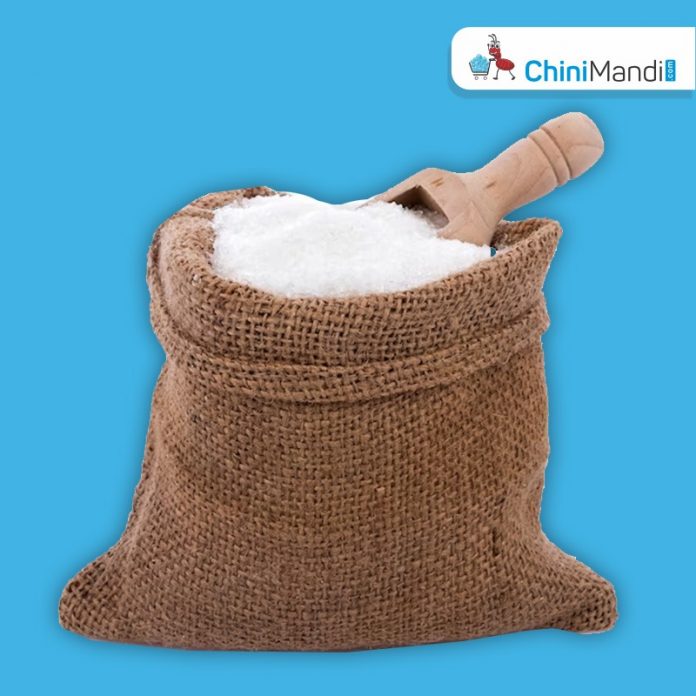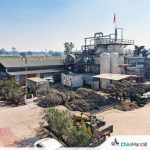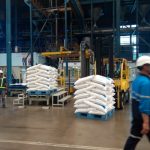As the government has directed sugar mills to ensure strict compliance with the mandatory requirement of using jute packaging for 20% of the total sugar production starting from the sugar season 2023-24, millers have urged government to totally exempt sugar from the compulsory packaging in jute bags under the Jute Packaging Materials Act 1987. Sugar mills claim that this could lead to increased costs and operational challenges.
In a letter sent to Amresh Kumar, Under Secretary, Ministry of Textiles (Jute Section), the National Federation of Cooperative Sugar Factories Limited (NFCSF) has stated that the compulsion of mandatory jute packaging should be withdrawn by the Ministry of Textiles. The letter said, “Jute bags are ofcourse useful for grains/seeds but not for sugar. Environmental and technical issues restrain the use of jute bags in sugar due to several reasons: (a) Jute bags being airy protect the grains and seeds from deterioration/loss of germination because these are live entities unlike sugar. Thus, jute bags are beneficial for packing grains/seeds. (b) Sugar is highly hygroscopic. Part of sugar production is stored for one year or more due to policy guidelines of Ministry of Food and Consumer Affairs. Thus it sometimes passes through two rainy seasons. Moisture gain during production/transportation/storage in humid environment is not congenial for its quality.”
The letter further reads, “Unlike grains which need to be cleaned before cooking, sugar is consumed in its existing form. Sugar packed in jute bags is harmful when consumed directly because of various reasons: (i) Jute fibres cannot be removed from sugar. (ii) Jute Batching Oil is used in the Jute industry to make the jute fibres pliable. If Jute material is used in packaging of sugar, which is directly being consumed, the presence of such heavier oil may be harmful because it may contain carcinogenic compounds. (iii) Large gaps/interspaces in the woven jute bags lead to sugar leakage and moisture gain. (iv) Microbiological growth also depends on the moisture content gained by sugar. (v) The color of sugar packed in jute bags changes over a period of time during storage. Bulk consumers like beverages, biscuits, confectioners, pharmaceutical companies, etc., are reluctant to accept sugar packed in jute bags due to these reasons.”
NFCSF further added, “Besides this, 50 kg sugar bags of HDPE/PP woven sacks were filled and tested for various aspects like filling. Stitching, drop test, hook application and aeration under the aegis of V.S.I. Pune, at different sugar factories and found these parameters exceed the qualifying qualities over Jute Bags. Jute bags are often more expensive than HDPE/PP Sacks, which discourages use by Cooperative Sugar Mills/consumers. The cost of packing one quintal of Sugar in Jute bags comes to around Rs. 120- 130/- while in HDPE bag it is Rs. 45-50/.”
The Cooperative Sugar Mill body highlighted, “Fair and Remunerative Price (FRP) of sugarcane and MRP of sugar are fixed and under the control of the Government. Most of the Cooperative Sugar Mills are loss-making ventures. To address this, retailers need to offer incentives, such as discounts or rewards, to encourage customers to use jute bags. The additional cost of the packaging material may enhance further loss to the Cooperative Mills. In India, sugar is exported in international markets besides the Indian market. It may also be viewed in the direction that outside India, countries are using PP woven sacks as their first and only choice. Even the second-largest producer of jute, Bangladesh, has no restrictions on packaging sugar in jute bags, and also the second-largest producer of sugar, Brazil, has no compulsion on packing sugar in jute bags.”
NFCSF also stated that packaging is the ultimate reflection of any finished product in terms of its saleability. Today in the emulative market, the buyers choose the packaging material keeping if view various technical, hygiene and financial aspects. Thus packaging reservation is against the competitive neutrality. The compulsory use of Jute bags against the manufacture and consumer’s preference restricts their choice in today’s free trade environment.
NFCSF Managing Director Prakash Naiknavare, while speaking to ChiniMandi, said, “This is gross injustice to the sugar sector. It is illogical to cross-subsidize the jute industry via the sugar industry. Ironically, such unilateral decisions are being thrust upon the sugar sector, which is struggling to recover ground after a series of bad seasons.”
Recently, in a letter addressed to sugar mills, the Department of Food and Public Administration (DFPD) stated, “All the sugar mills were advised to strictly comply with the requirement of packing 20% of the total production of sugar mandatorily in jute packaging material.”
According to the NFCSF, Rangarajan committee and the Commission for Agricultural Costs & Prices (CACP) have also recommended for complete removal of sugar from Jute Packaging Materials Act’s ambit. JPMA, 1987 earlier covered food-grains, Cement, Fertilizer and Sugar. Cement was excluded in 1998 and fertilizers were excluded in 2001, but Sugar was not excluded which is second largest industry after textiles and having a number of Govt controls related to Sugarcane prices, sales quota/prices; Buffer/Reserve stock etc.













[…] Source Link: https://www.chinimandi.com/millers-urge-government-to-exempt-sugar-from-compulsory-pack… […]